About us
The research activity of the DNA Mismatch Repair group, led by Dr. Gabriel Capellá and Marta Pineda, is focused on the improvement of healthcare of patients with mismatch repair associated hereditary cancer syndromes, namely Lynch syndrome and Constitutional Mismatch Repair Deficiency (CMMRD).
Our main lines of research include:
– The improvement of molecular diagnostic algorithms.
– The development of novel tools to improve clinical follow-up strategies.
– The identification of molecular mechanisms underlying constitutional methylation.
– The characterization of early events leading to carcinogenesis.
– The in vitro modeling of germline mismatch repair deficiency.
– The evaluation of microsatellite instability as a marker of response to immunotherapy.
We benefit from a daily interaction with oncologists and genetic counselors of the Genetic Counseling Units and the staff of the Molecular Diagnostics Laboratory, facilitating the involvement of families in our projects, and the translation of results to clinical practice.
We are participating and leading national and regional initiatives of genomic-based precision medicine in cancer such as: IMPaCT Genomica, SPADA-HC, CRECE and VUSCan.
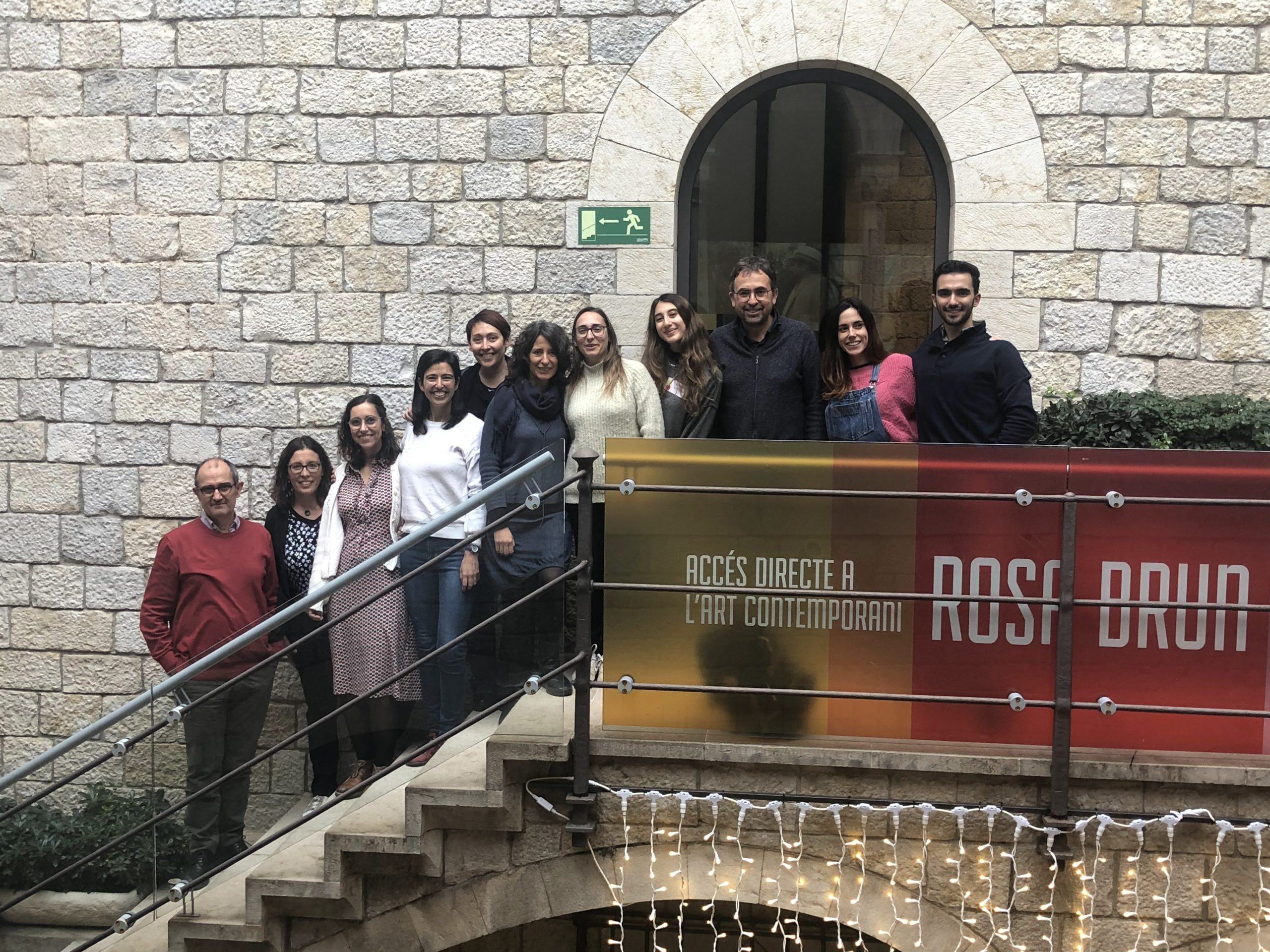
About the disease
Hereditary predisposition to colorectal and endometrial cancers accounts for 2-5% of cancer diagnosis worldwide, leading to high rates of morbidity and mortality, clustering within families. The most common cause of hereditary colorectal and endometrial cancer is the autosomal dominant Lynch syndrome. It is caused by a loss-of-function germline mutation in one of the four mismatch repair (MMR) genes (MLH1, MSH2, MSH6 and PMS2).
Its biallelic counterpart is the rare autosomal recessive Constitutional Mismatch Repair Deficiency (CMMRD) both clustering as MMR-deficiency (MMR-D) syndromes. The spectrum of CMMRD tumours is broad, including brain tumors, hematological malignancies and colorectal cancers, already in children and young adults.
Accurate and prompt diagnosis of these syndromes is critical for clinical management, risk assessment and genetic counselling of carrier individuals and their families.
Group members
Principal investigators
Marta Pineda Riu
Principal Investigator
Gabriel Capellá Munar
Principal Investigator
Joan Brunet Vidal
Principal Investigator
Marta Pineda Riu
Principal Investigator

Marta Pineda is a graduate in Biochemistry and a PhD in Biochemistry and Molecular Biology from the University of Barcelona. Since August of 2004 Marta Pineda is part of the Molecular Diagnostics Unit of the Hereditary Cancer Program at the Catalan Institute of Oncology, where she has focused on genetic diagnosis and research of hereditary colorectal cancer.
Her knowledge as a specialized geneticist in hereditary cancer has allowed her to perform a research activity with high clinical translation, mainly focused on improving identification and risk assessment of individuals with mismatch repair deficient-associated syndromes (Lynch syndrome and CMMRD). Since 2012 she is a member of the Variation Interpretation Committee of the Insight (current Insight/ClinGen VCEP).
She has published 99 articles in peer-reviewed journals, 12 as first author and 11 as last and/or corresponding author (H-index: 28). During these years she has actively participated in 20 R&D projects financed by public entities. Since 2013 she has received continuous funding as principal investigator.
She has supervised five experimental Master works and four doctoral thesis. Currently she is co-supervising the doctoral thesis of three students.
Gabriel Capellá Munar
Principal Investigator

Gabriel Capellá obtained his MD degree by the University of Barcelona in 1983. He trained as a general and digestive surgeon. His interest in translational cancer research lead him to a postdoctoral stay with Dr. Manuel Perucho the years 1989 and 1990 at La Jolla, USA.
Back to Spain he spent 8 years at the Gastrointestinal Research Laboratory at the Hospital de Sant Pau where he focused his research in the molecular basis of pancreatic and colorectal cancer. He was Director of the Translational Research Laboratory of the Catalan Institute until 2011 where he is now Director of the Hereditary Cancer Program, role that he combines with being head of the IDIBELL Hereditary Cancer group. He is also the coordinator of the CIBERONC’s Digestive Tract Tumors Research Program.
He has pioneered the implementation of cancer genetics units and molecular testing of hereditary cancer in Spain. His research projects are centered in the detection and clinical and molecular characterization of Lynch Syndrome and Familial Adenomatous Polyposis, also in the development of novel technologies for genetic analysis.
He is coauthor of more than 400 publications in international peer-reviewed journals and has co-founded the spinoff VCN Biosciences, aimed at the development of oncolytic virus-based therapies. He served as vice-director of Investigation and Innovation of the Catalonian Health Department from 2013 to 2016, when he was appointed Director of IDIBELL.
Postdoctoral researchers
Paula Climent Cantó
Postdoctoral researcher
Fátima Marín Nieto
Postdoctoral researcher
Mireia Morell Ginestà
Postdoctoral researcher
Sara Crespo Yanguas
Postdoctoral researcher
Paula Climent Cantó
Postdoctoral researcher

Paula Climent graduated in Biology and holds a MSc in Genetics and Genomics. After a short stay at the Beatson Institute in Glasgow, she joined the IRB Barcelona and IBMB-CSIC to study how the Drosophila embryonic linker histone represses the zygotic genome. Afterwards, she joined the University of Barcelona to study the effects of oxidative stress in tumor growth and on gene expression. She combined her research activity with teaching in the Genetics and Genomics master and in the Biology and Biomedical Sciences degrees. She Joined IDIBELL in 2022 where she combines basic and clinical research to characterize the molecular mechanisms underlying MLH1 constitutional epimutations.
Fátima Marín Nieto
Postdoctoral researcher

Fátima Marín studied Biology and a Master in Genetics at the University Autònoma of Barcelona and obtained her PhD in the same university, focused on the study of genetic susceptibility of gastric cancer. Afterwards, she completed a Master in Bioinformatics and Biostatistics and worked in different units of the Molecular Diagnostics of Hereditary Cancer, Biomarkers Research in Colorectal Cancer (ICO-IDIBELL), and Genomics (CRAG-CSIC). She joined the DNA Mismatch Repair Group in November 2016, as postdoctoral researcher, where she is involved in several projects focused on the research of the molecular basis of syndromes associated with mismatch repair deficiency and the development of improved strategies for the management of the patients.
Mireia Morell Ginestà
Postdoctoral researcher

Mireia Morell Ginestà (LLeida, 1973) holds a degree and a doctorate in Biology from the University of Barcelona. During her PhD she worked on the design of immunosuppressive guidelines in an animal model of hepatic xenotransplantation. Since September 2003 she has been working at the Institut Català d’Oncologia where her work has focused on participating in different types of translational studies in gastrointestinal tumors that gave her experience with wide range of molecular biology techniques. She also has experience in mice experimental models as in the surgical level as in the standard procedures.
Sara Crespo Yanguas
Postdoctoral researcher

Dr. Sara Crespo obtained her Bachelor´s degree in Biology at the University of Alcalá de Henares in 2011 and got her Master´s in Microbiology and Parasitology at the Complutense University in 2012. Before starting her PhD, she was shortly employed by the pharmaceutical company Eli Lilly & Company, where she contributed to research activities related to drug discovery. Thereafter, she performed her PhD studies in Pharmaceutical Sciences at the Vrije Universiteit Brussel in Brussels from 2014 to 2018, studying the role of connexin and pannexin channels as drug targets in liver fibrosis under the direction of Prof. Mathieu Vinken and Prof. Bruno Cogliati. She demonstrated the pathogenicity of connexin 43 and pannexin1 (hemi)channels during liver fibrosis.
In 2019, she returned to Spain as a Postdoctoral Researcher at Dr. Gabriel Capellá´s and Dr. Marta Pineda´s lab at IDIBELL, where she is currently developing an in vitro model by means of pluripotent stem cell-derived organoids to study mismatch repair deficient syndromes.
PhD students
Júlia Canet Hermida
Predoctoral researcher
Núria Dueñas Cid
Predoctoral researcher
Manuel Torralba Carnerero
Predoctoral researcher
Oscar Mesía Carbonell
Predoctoral researcher
Núria Dueñas Cid
Predoctoral researcher

Núria Dueñas graduated in Medicine at the Universitat Autònoma de Barcelona in 2010, specialization in Medical Oncology at the Hospital de Sant Pau between 2011 and 2016. Since 2017 she is working as a phisician at the Hereditary Cancer Unit of the ICO. She is specialized in syndromes of hereditary predisposition to digestive cancer, among others. She is currently working on genotype-phenotype correlation in Lynch syndrome, population CRC screening and polygenic risk score.
Manuel Torralba Carnerero
Predoctoral researcher

Manuel is graduated in Biotechnology and holds a masters degree in Health Biotechnology by University Pablo de Olavide (Seville). Currently he is PhD student in Hereditary Cancer Program (IDIBELL) associated to the Biomedicine PhD program (University of Barcelona).
Oscar Mesía Carbonell
Predoctoral researcher

Oscar Mesía is graduated in Biological Systems Engineering by the Universitat Politècnica de Catalunya (UPC) and holds a master’s degree in molecular biotechnology by the Universitat de Barcelona (UB). Currently he is a PhD student in Hereditary Cancer group (IDIBELL). His work is focused on improving the identification and clinical management of Constitutional Mismatch Repair Deficiency Syndrome (CMMRD).
Research Assistants
Marina Galán Rueda
Research assistant
Marina Galán Rueda
Research assistant

Marina Galán graduated in Biology by the University of Alcalá de Henares and holds a MSc in Genetics and Genomics by University of Barcelona. She joined the Hereditary Cancer program in 2023. Her work is currenlty focused on the validation of the clinical utility of highly sensitive microsatellite instability assessment in improving gynecologic follow-up strategies in Lynch syndrome.
Postdoctoral researchers
Covadonga Vara
Postdoctoral researcher
PhD students
Ester Borràs
Predoctoral researcher
Gardenia Vargas
Predoctoral researcher
Estela Dámaso
Predoctoral researcher
Demetra Kyriacou
Predoctoral researcher
Maribel González-Acosta
Predoctoral researcher
Ester Castellsagué Torrents
Predoctoral researcher
Mireia Gausachs Romero
Predoctoral researcher
Zamira Vanessa Diaz Riascos
Predoctoral researcher
Elena Sánchez Cuartielles
Predoctoral researcher
Maribel González-Acosta
Predoctoral researcher

Improving Genetic Testing

Marta Pineda is a graduate in Biochemistry and a PhD in Biochemistry and Molecular Biology from the University of Barcelona. Since August of 2004 Marta Pineda is part of the Molecular Diagnostics Unit of the Hereditary Cancer Program at the Catalan Institute of Oncology, where she has focused on genetic diagnosis and research of hereditary colorectal cancer.
Her knowledge as a specialized geneticist in hereditary cancer has allowed her to perform a research activity with high clinical translation, mainly focused on improving identification and risk assessment of individuals with mismatch repair deficient-associated syndromes (Lynch syndrome and CMMRD). Since 2012 she is a member of the Variation Interpretation Committee of the Insight (current Insight/ClinGen VCEP).
She has published 99 articles in peer-reviewed journals, 12 as first author and 11 as last and/or corresponding author (H-index: 28). During these years she has actively participated in 20 R&D projects financed by public entities. Since 2013 she has received continuous funding as principal investigator.
She has supervised five experimental Master works and four doctoral thesis. Currently she is co-supervising the doctoral thesis of three students.

Gabriel Capellá obtained his MD degree by the University of Barcelona in 1983. He trained as a general and digestive surgeon. His interest in translational cancer research lead him to a postdoctoral stay with Dr. Manuel Perucho the years 1989 and 1990 at La Jolla, USA.
Back to Spain he spent 8 years at the Gastrointestinal Research Laboratory at the Hospital de Sant Pau where he focused his research in the molecular basis of pancreatic and colorectal cancer. He was Director of the Translational Research Laboratory of the Catalan Institute until 2011 where he is now Director of the Hereditary Cancer Program, role that he combines with being head of the IDIBELL Hereditary Cancer group. He is also the coordinator of the CIBERONC’s Digestive Tract Tumors Research Program.
He has pioneered the implementation of cancer genetics units and molecular testing of hereditary cancer in Spain. His research projects are centered in the detection and clinical and molecular characterization of Lynch Syndrome and Familial Adenomatous Polyposis, also in the development of novel technologies for genetic analysis.
He is coauthor of more than 400 publications in international peer-reviewed journals and has co-founded the spinoff VCN Biosciences, aimed at the development of oncolytic virus-based therapies. He served as vice-director of Investigation and Innovation of the Catalonian Health Department from 2013 to 2016, when he was appointed Director of IDIBELL.


Paula Climent graduated in Biology and holds a MSc in Genetics and Genomics. After a short stay at the Beatson Institute in Glasgow, she joined the IRB Barcelona and IBMB-CSIC to study how the Drosophila embryonic linker histone represses the zygotic genome. Afterwards, she joined the University of Barcelona to study the effects of oxidative stress in tumor growth and on gene expression. She combined her research activity with teaching in the Genetics and Genomics master and in the Biology and Biomedical Sciences degrees. She Joined IDIBELL in 2022 where she combines basic and clinical research to characterize the molecular mechanisms underlying MLH1 constitutional epimutations.

Fátima Marín studied Biology and a Master in Genetics at the University Autònoma of Barcelona and obtained her PhD in the same university, focused on the study of genetic susceptibility of gastric cancer. Afterwards, she completed a Master in Bioinformatics and Biostatistics and worked in different units of the Molecular Diagnostics of Hereditary Cancer, Biomarkers Research in Colorectal Cancer (ICO-IDIBELL), and Genomics (CRAG-CSIC). She joined the DNA Mismatch Repair Group in November 2016, as postdoctoral researcher, where she is involved in several projects focused on the research of the molecular basis of syndromes associated with mismatch repair deficiency and the development of improved strategies for the management of the patients.

Mireia Morell Ginestà (LLeida, 1973) holds a degree and a doctorate in Biology from the University of Barcelona. During her PhD she worked on the design of immunosuppressive guidelines in an animal model of hepatic xenotransplantation. Since September 2003 she has been working at the Institut Català d’Oncologia where her work has focused on participating in different types of translational studies in gastrointestinal tumors that gave her experience with wide range of molecular biology techniques. She also has experience in mice experimental models as in the surgical level as in the standard procedures.

Dr. Sara Crespo obtained her Bachelor´s degree in Biology at the University of Alcalá de Henares in 2011 and got her Master´s in Microbiology and Parasitology at the Complutense University in 2012. Before starting her PhD, she was shortly employed by the pharmaceutical company Eli Lilly & Company, where she contributed to research activities related to drug discovery. Thereafter, she performed her PhD studies in Pharmaceutical Sciences at the Vrije Universiteit Brussel in Brussels from 2014 to 2018, studying the role of connexin and pannexin channels as drug targets in liver fibrosis under the direction of Prof. Mathieu Vinken and Prof. Bruno Cogliati. She demonstrated the pathogenicity of connexin 43 and pannexin1 (hemi)channels during liver fibrosis.
In 2019, she returned to Spain as a Postdoctoral Researcher at Dr. Gabriel Capellá´s and Dr. Marta Pineda´s lab at IDIBELL, where she is currently developing an in vitro model by means of pluripotent stem cell-derived organoids to study mismatch repair deficient syndromes.



Núria Dueñas graduated in Medicine at the Universitat Autònoma de Barcelona in 2010, specialization in Medical Oncology at the Hospital de Sant Pau between 2011 and 2016. Since 2017 she is working as a phisician at the Hereditary Cancer Unit of the ICO. She is specialized in syndromes of hereditary predisposition to digestive cancer, among others. She is currently working on genotype-phenotype correlation in Lynch syndrome, population CRC screening and polygenic risk score.

Manuel is graduated in Biotechnology and holds a masters degree in Health Biotechnology by University Pablo de Olavide (Seville). Currently he is PhD student in Hereditary Cancer Program (IDIBELL) associated to the Biomedicine PhD program (University of Barcelona).






Improving Genetic Testing





Marina Galán graduated in Biology by the University of Alcalá de Henares and holds a MSc in Genetics and Genomics by University of Barcelona. She joined the Hereditary Cancer program in 2023. Her work is currenlty focused on the validation of the clinical utility of highly sensitive microsatellite instability assessment in improving gynecologic follow-up strategies in Lynch syndrome.

Oscar Mesía is graduated in Biological Systems Engineering by the Universitat Politècnica de Catalunya (UPC) and holds a master’s degree in molecular biotechnology by the Universitat de Barcelona (UB). Currently he is a PhD student in Hereditary Cancer group (IDIBELL). His work is focused on improving the identification and clinical management of Constitutional Mismatch Repair Deficiency Syndrome (CMMRD).
Publications
List of scientific publications from DNA MisMatch Repair Lab
Projects
Assessment of a novel pan-cancer biomarker to improve immunotherapy response prediction
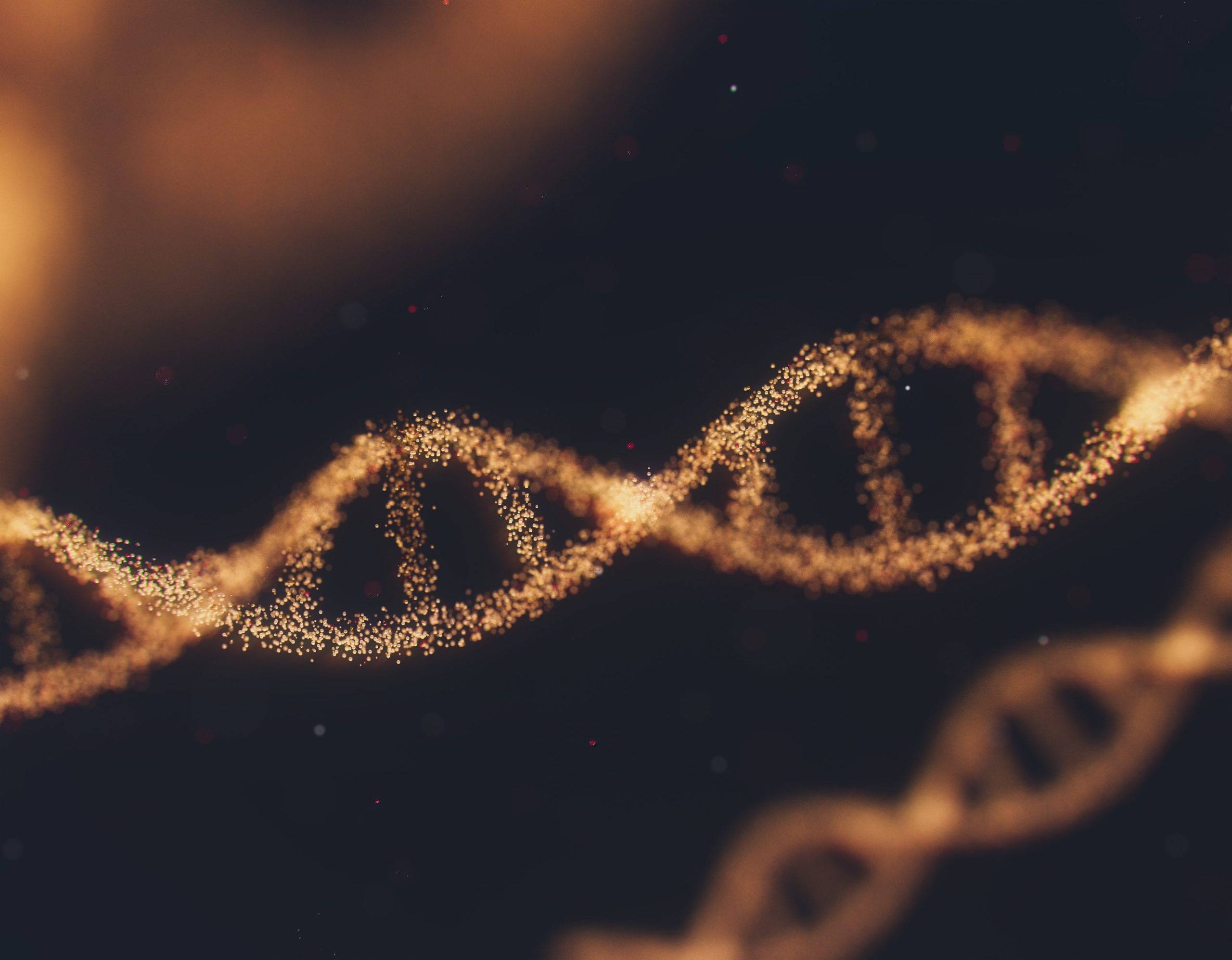
01/10/2021 — 01/09/2024
Immune checkpoint inhibitor (ICI) therapies have transformed clinical cancer care, particularly in tumours with mismatch repair deficiency. However, there is wide inter-individual variability in response, limiting its application in clinical practice. Preliminary results suggest that quantification of the level of microsatellite instability (MSI) may account for response variability in MMR-deficient tumours. The main aim of the… Read more »
Validation of the clinical use of high-sensitivity microsatellite instability assessment in improving early diagnosis of endometrial cancer and establishing personalized gynecological follow-up strategies in Lynch syndrome

01/10/2022 — 01/09/2024
Current early detection and gynaecological follow-up strategies are not effective. Our group has identified a potential cancer progression biomarker in apparently normal endometrium. We aim to validate the clinical utility of this assay in endometrial aspirates and minimally invasive samples in a national multicentric cohort of women with Lynch syndrome under surveillance. We are also… Read more »
IMPaCT-VUScan: Development and implementation of a functional genomics platform for undiagnosed hereditary cancer

01/01/2023 — 31/12/2025
IMPaCT-VUScan is an initiative that aims to identify variants of unknown significance (VUS) in suspected hereditary cancers. The IMPaCT-Genómica initiative has already developed a basic platform and workflows to evaluate unsolved cases with suspected genetic diseases, including hereditary cancer cases. However, it is expected that multiple VUS will be identified in most, if not all,… Read more »
Hereditary Cancer Research Group – AGAUR

07/03/2023 — 15/03/2045
We are a multidisciplinary-multicentric research group (ICO-IDIBELL-IDIBGI-Vall Hebron-VHIO) that have worked for more than 20 years offering genetic counseling, molecular diagnosis and hereditary cancer research accomplishment. Our main goal is to know more precisely the basis of hereditary cancer in order to be able to personalize the estimation of the risk of patients and relatives… Read more »
SpadaHC: Spanish DataBase for Hereditary Cancer
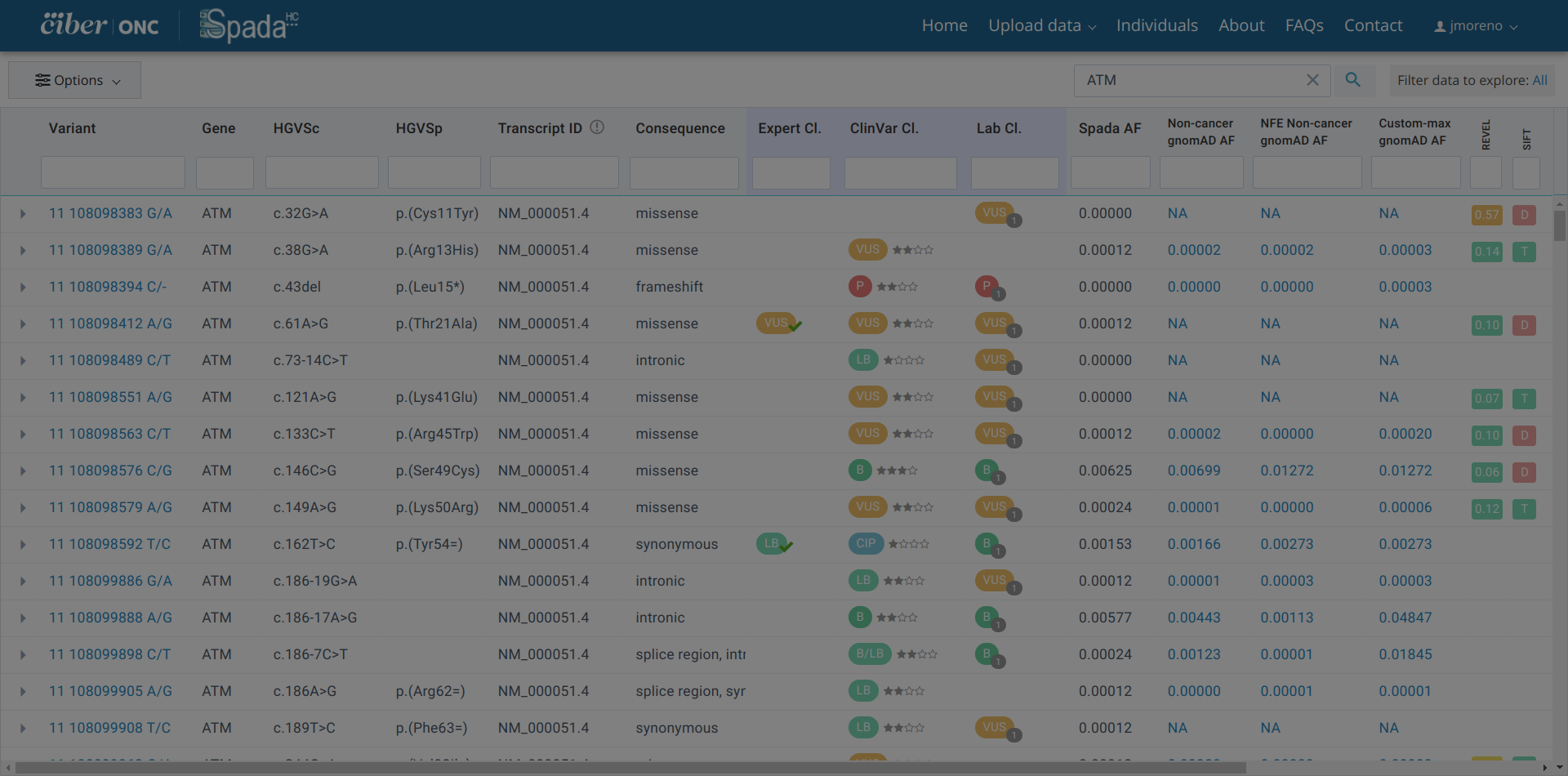
01/01/2022 — 01/05/2123
Database for sharing genetic variants in hereditary cancer genes and their interpretation from expert panels and Spanish genetic diagnostics laboratories. The database also provides population frequencies of variants in Spanish individuals based on their clinical suspicion of cancer predisposition. The ultimate purpose of SpadaHC is to offer a useful resource for the research community and… Read more »
Pancreatic orthotopic PDX mouse models as tools to test new therapeutic strategies for pancreatic cancer

01/01/2019 — 31/12/2024
Pancreatic cancer is currently the fourth cancer mortality cause in the European Union. Pancreatic Ductal Adenocarcinoma (PDAC), the most common pancreatic neoplasm, is particularly aggressive and fast growing. Only about 15 % of patients are diagnosed when tumours are surgically resectable, although poor survival is reported. We have generated a collection of pancreatic orthotopic PDX… Read more »
Ability of a polygenic risk score to refine cancer risk in Lynch syndrome

01/01/2021 — 31/12/2024
Lynch syndrome is characterized by incomplete penetrance. One of the main current challenges is to identify risk-modifying factors which modulate the expressivity of the disease. Genetic risk modifiers (i.e. Polygenic risk score, PRS) have been described to model the colorectal cancer (CRC) risk in general population, but their effect on CRC risk in Lynch syndrome… Read more »
Hereditary forms and development of biomarkers in gastrointestinal cancer

01/01/2016 — 31/12/2024
The aim is to advance insights into the dynamic evolution of gastrointestinal tumors and to preliminary evaluate its putative clinical impact
Modeling precancer in germline mismatch repair deficiency for a personalized immune-based surveillance (MIsMatch4PERSON)
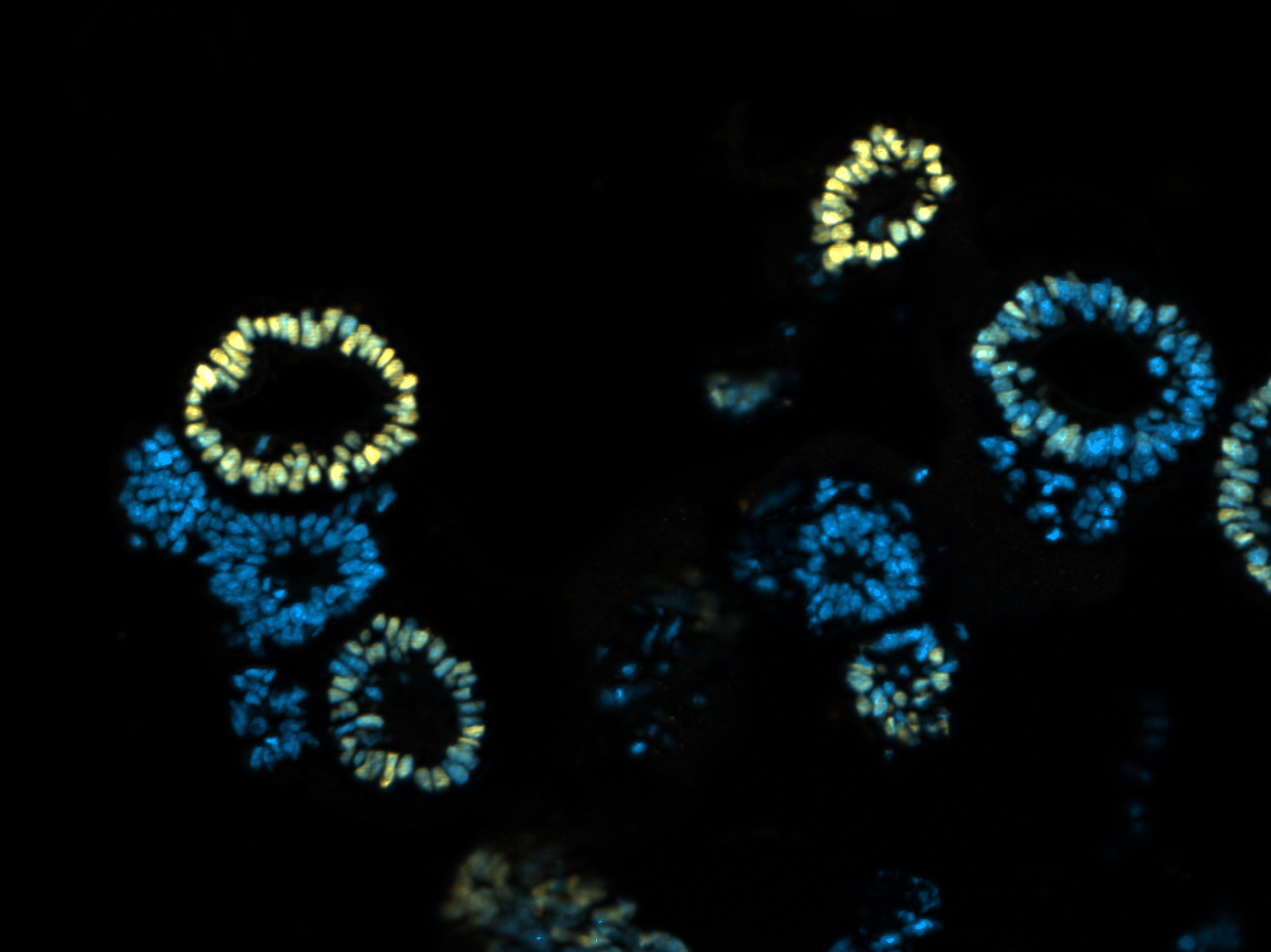
01/06/2020 — 01/05/2024
Despite intensive surveillance, a significant number of patients with MMR-deficient associated syndromes will develop tumors within surveillance intervals. Our goal in MIsMatch4PERSON project is the characterization of the key players of cancer progression in MMR carriers by using an in vitro-in vivo approach to settle the basis for the development of personalized surveillance strategies and prevention.
The mechanistic basis for constitutional MLH1 methylation

01/06/2019 — 01/05/2024
Around 1-2% of the Lynch syndrome cases are caused by MLH1 constitutional epimutations, most of them arising de novo (without an underlying cis-genetic cause) and reversed in the following generation. Alterations in distal regulatory regions may affect the expression of genes that they regulate. In this project we aim to characterize the chromatin landscape of the… Read more »
Characterizing early events driving carcinogenesis in Constitutional Mismatch Repair Deficiency (CMMRD) syndrome as a potential strategy for precision surveillance and prevention
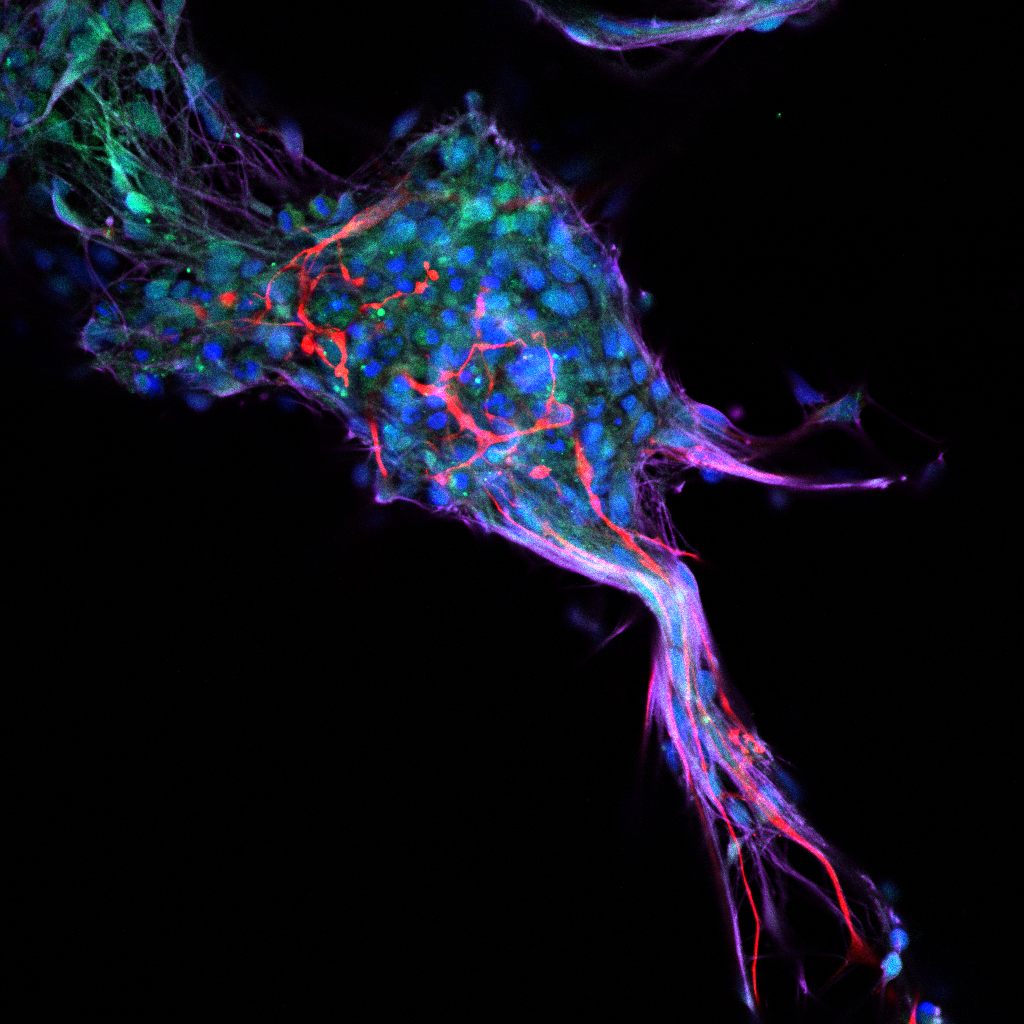
01/04/2021 — 01/03/2024
Constitutional mismatch repair deficiency (CMMRD) is a rare childhood-onset cancer predisposition syndrome caused by biallelic mutations in mismatch repair genes. The spectrum of CMMRD tumours is broad, being high-grade gliomas one of the most frequently diagnosed tumours. In this project we aim to improve the identification of CMMRD syndrome patients in our country and to characterize… Read more »
MedPerCan: Personalised Medicine in Cancer – Catalonia: A pilot study on the impact of genomic testing in the decision-making process in Oncology
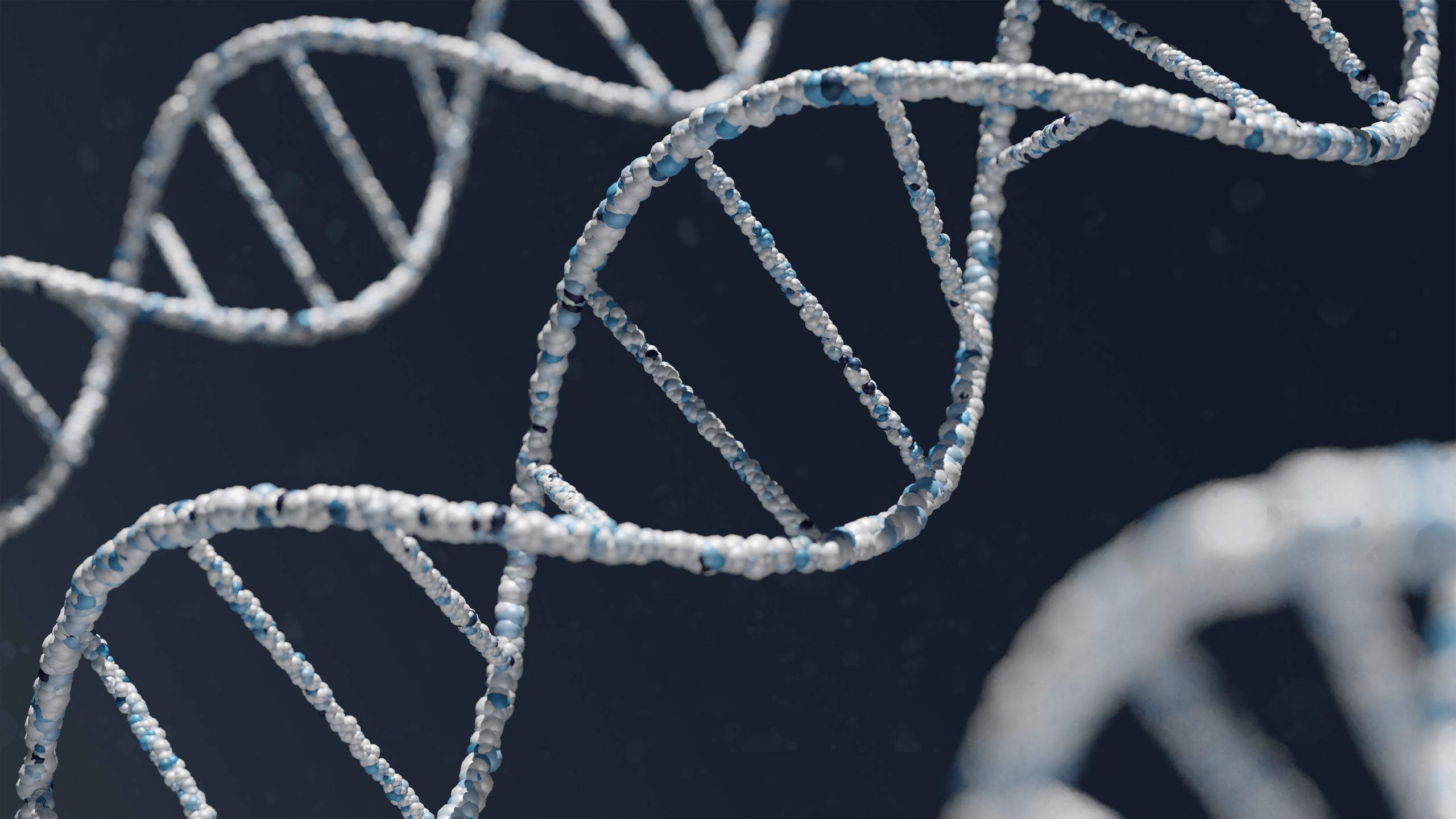
30/06/2016 — 30/06/2020
MedPerCan proposes the development of a model of genomic precision medicine in oncology in Catalonia from pilot projects that will determine the value of the genomic analysis in various stages of the oncologic disease (determining risk of hereditary cancer, treatment response and first-choice treatment in advanced stages).
IMPaCT Genómica: Implementation of Precision Medicine in the Spanish National Health System.
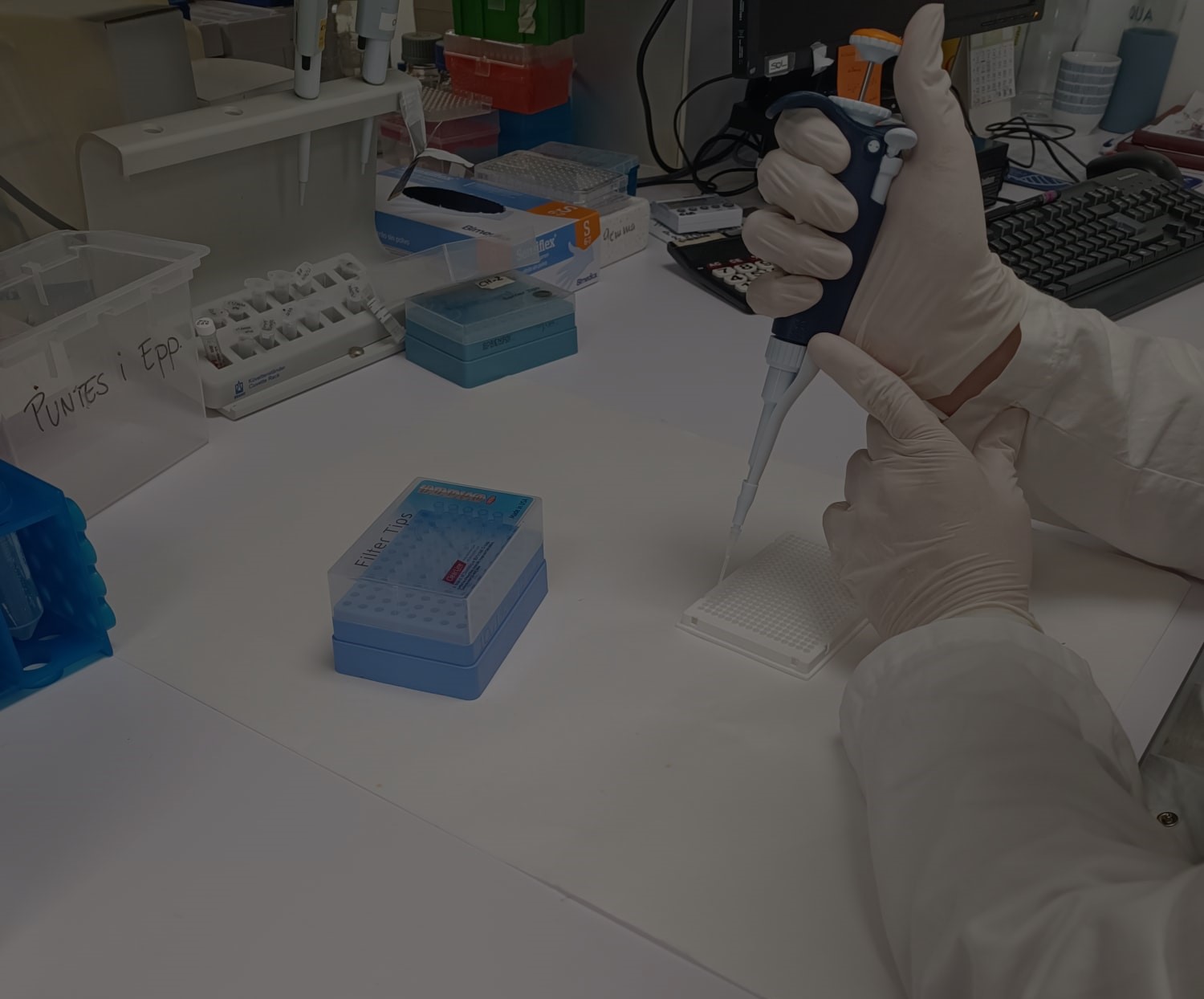
01/05/2020 — 31/12/2023
The Cancer Working Package (WP4) of the IMPaCT Genómica program aims to improve the diagnosis, prevention, and treatment of suspected hereditary cancers and cancers of unknown origin that have not been resolved with the current tools of the healthcare system. The WP4 team, led by Dr. Gabriel Capellà (IDIBELL) collaborates with over 80 healthcare professionals… Read more »
SOLVE-RD: Solving the unsolved rare diseases

30/06/2018 — 30/06/2023
“Solve-RD – solving the unsolved rare diseases” is a research project funded by the European Commission for five years (2018-2023), aimed to identify the genetic causes of rare diseases for which a molecular cause is not known yet and to improve diagnostics of rare disease patients through contribution to, participation in and implementation of a… Read more »
Phd thesis
-
Development of new approaches for molecular diagnostics of mismatch repair-deficient associated cancer syndromes
PhD student: Maribel González Acosta Supervisors: Gabriel Capellá and Marta Pineda (2019) -
Identification and characterization of epigenetic alterations responsible of Lynch and Lynch-like syndromes
PhD student: Estela Dámaso Riquelme Supervisors: Gabriel Capellá and Marta Pineda (2018) -
Prognostic value of tumor expression of embryonic markers and nodal molecular restaging in non-small cell lung carcinoma
PhD student: Ivan Macía Vidueira Juan Antonio Moya and Gabriel Capellá (2016) -
Study of the prognostic value and clinical utility of a panel of genetic and epigenetic markers in patients with lung cancer
PhD student: Ernest Nadal Supervisors: Felipe Cardenal and Gabriel Capellá (2016) -
Elucidating the molecular basis of Lynch-like syndrome
PhD student: Gardenia Vargas Parra Supervisors: Gabriel Capellá and Marta Pineda (2016) -
Functional and molecular analysis of variants in the APC and UNC5C colorectal cancer-associated genes
PhD student: Elena Sánchez Cuartielles Supervisor: Gabriel Capellá (2015) -
Biomarkers in hereditary colorectal cancer: clinical applications and study of tumor dynamics
PhD student: Mireia Gausachs Supervisor: Gabriel Capellá (2014) -
Molecular characterization of an orthotopic model of pancreatic ductal adenocarcinoma in athymic mice: study of the role of the miR-200 family.
PhD student: Zamira Vanessa Diaz Riascos Supervisor: Gabriel Capellá (2014) -
Methylation pattern for a panel of lung adenocarcinoma biomarkers
PhD student: Marc Gallegos Supervisor: Gabriel Capellá (2013) -
Study of variants of unknown significance in Lynch syndrome
PhD student: Ester Borràs Flores Supervisors: Gabriel Capellá and Marta Pineda (2013) -
Hereditary colorectal cancer: Diagnostic applications in the analysis of APC, MLH1 and MSH2 gene dose
PhD student: Ester Castellsagué Supervisor: Gabriel Capellá (2009) -
Evaluación de ensayos de alta sensibilidad para mejorar la identificación y el seguimiento de individuos con síndromes de cáncer hereditario asociados a la deficiencia de reparación de errores de apareamiento
PhD student: Júlia Canet Hermida Supervisors: Gabriel Capellá and Marta Pineda (2023)
Media
News
1
Videos
2
Contact
If you have any doubts or concerns about this research team, contact us by filling this form
